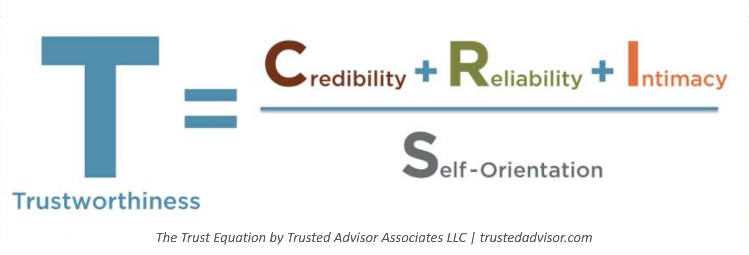
Culture is the glue that keeps cross-sector collaboratives together and functioning effectively. When collaboratives get intentional about their culture, they can more quickly and more effectively tackle social problems, as my colleague Sara Brenner wrote about in the Stanford Social Innovation Review. Throughout The Exchange 2018 conference, the importance of culture kept surfacing. Hilary Pennington from the Ford Foundation, for example, talked about how the Fund for Shared Insight creators spent time upfront discussing how they would make decisions and resolve conflict.
A critical piece of culture is trust, so it was no surprise that in the session I facilitated on “Building a Culture for Cross-Sector Collaboration,” we spent much of the time talking about trust. Even well-intentioned efforts to collaborate can fall apart if those involved don’t trust each other. From my experience working with teams and collaboratives, I’d argue that lack of trust is the number one reason collaboratives fail. Trust is everything.
The good news is that when we know the components of trustworthiness, we can consciously and consistently engage in trust-building behaviors. Enter the Trust Equation, a framework created by Trusted Advisor Associates to help us understand the basic elements of what makes someone trustworthy. Trusted Advisor Associates first introduced this framework to our organization several years ago and it has helped us build stronger relationships with each other, clients and partners, and among the members of collaboratives with whom we work.

So where might you start infusing more trust into your collaborative?
- Get Smart on What Builds Trust. It takes high levels of credibility (the knowledge and experience you bring), reliability (the consistency of your actions) and intimacy (how secure and safe people feel with you). At the same time, it requires you to have a low self-orientation (focusing on the person with whom you’re trying to build trust as opposed to yourself and your own interests).
- Put It Into Practice. There are small, concrete steps you can use as a starting point. For example, if you want to become more reliable, make small promises and follow through on all of them. Or, if you want to demonstrate low self-orientation, ask lots of questions from a place of curiosity to better understand people’s intentions and goals. During the session, someone asked whether you can use your knowledge of the elements of trust to increase someone else’s trustworthiness. My answer was, well, yes and no. The only actions we can control are our own, but we can model what it looks like to build trust and, in doing that, invite others to do so too. For example, if you want to increase intimacy in a relationship, take a personal risk, be vulnerable and share something personal about yourself; when you do, it opens the door for someone else to do it too.
- Create a Shared Understanding of Trust in Your Collaborative. Collaboratives can more effectively work toward their goals when they’re explicit about the importance of trust and the group’s commitment to building and repairing it. To do this, it helps to have shared language around the elements that build trust. By creating a shared understanding of what it takes to build trust and language for talking about it, you can create an environment where members of the collaborative feel equipped not just to build trust but also to talk about it when things go wrong.
- Use Positive Reinforcement. When your collaborative meets, find opportunities to celebrate and learn from trust-building behaviors. It could be as simple as setting aside five minutes during every meeting for members to acknowledge their colleagues and share trust-building success stories.
It seems simple, right? Unfortunately, all of us who have been part of collaboratives know it’s not as simple as it might seem. To succeed in cross-sector collaboration, culture—and building a culture based on trust—can’t just be an afterthought; it must be, as we like to say, “a critical strategy for large-scale change.”
For more content like this, subscribe to the Community Wealth Partners newsletter.
Amy Celep is CEO of Community Wealth Partners, a social impact consulting firm.